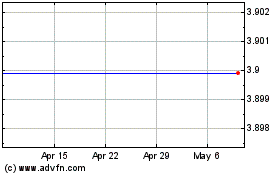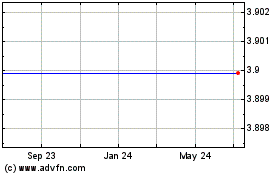By Matt Wirz, Becky Yerak and Alexander Gladstone
Citigroup Inc. and a big hedge-fund client are locked in an
uncharacteristically public feud that has embroiled top executives
at both firms and laid bare a $900 million mistaken payment by the
bank.
At the root of the dispute: Citi's role helping billionaire
investor Ron Perelman restructure the corporate loans of cosmetics
company Revlon Inc. Some investors wanted Citi to bow out of the
transaction; when it didn't, they blamed the bank for facilitating
a deal that hurt their investments, according to people familiar
with the matter and court documents.
Chief among those investors: $28 billion money manager Brigade
Capital Management LP.
Until recently, Brigade and its founder, Donald Morgan, had
worked closely with Citi. Brigade had hired Citi to help it raise
at least $1.5 billion of new loan funds over the past two years,
according to S&P Global Market Intelligence. The bank had also
advised Mr. Morgan on potential merger-and-acquisition
opportunities for Brigade in previous years, people familiar with
the matter said.
Now Citi and Brigade are slugging it out in court, cutting ties
and arguing over the return of around $170 million the fund
received when the bank accidentally paid Revlon lenders about $900
million. Citi even took the extraordinary step last month of
backing out of a nearly completed deal to arrange a $400 million
collateralized loan obligation for Brigade as well as another deal
that was in earlier stages, according to people familiar with the
matter. This cost the bank about $1 million in lost fees, the
people said.
"Though our fiduciary duty to our clients has put us into
conflict with Citibank relating to their role as agent on the
Revlon Term Loan, Brigade has not sought to limit any other
business or trading activity with Citibank as a consequence of this
specific disagreement," a spokeswoman for Brigade said.
The fight is the latest example of a big Wall Street bank caught
between the competing interests of its corporate and investment
clients. Years ago, banks typically served one group or the other.
Today's megabanks are one-stop shops that serve clients across the
financing and markets spectrum, sometimes leaving them in what can
appear to be conflicted positions.
For Citi, the dispute, and especially the mistaken payment, have
added to a string of missteps over the past decade, raised
questions from analysts about the bank's internal controls and
drawn the attention of regulators.
"The management team has acknowledged in the past that it had
credibility issues, so it doesn't help that," said Brian
Kleinhanzl, a managing director at Keefe, Bruyette & Woods
Inc.
Past examples include a fine in 2018 for failures in
anti-money-laundering controls, the disclosure of large frauds in
2014 in its Mexican unit and a $590 million settlement in 2012 of a
class-action suit filed in 2007 over alleged deceitful
mortgage-lending practices. The bank has since invested in
anti-money-laundering programs and this year appointed a new
compliance chief and created a new role, chief administrative
officer, to enhance safety and controls, according to a bank
spokeswoman and memos from Citi chief Michael Corbat.
Meanwhile, Brigade finds itself in the kind of limelight that
Mr. Morgan, a former high-yield bond analyst, has typically
avoided. While Brigade was launched primarily as a hedge-fund
manager in 2006 and sometimes plays an activist role at companies,
the bulk of the money it now manages is in more traditional
high-yield bond funds and collateralized loan obligations, or CLOs,
some of the people familiar with the matter said.
Trouble between the two firms dates back at least to April. A
group of hedge funds led by Brigade, HPS Investment Partners LLC
and Symphony Asset Management asked Citi to resign from its role as
the agent responsible for administering a loan it had arranged for
Revlon and then distributed to clients, according to people
familiar with the matter and court documents. HPS and Symphony both
declined to comment.
The lenders' beef? They believed Citi was helping Mr. Perelman's
Revlon restructure its debt in a way that would depress the value
of their investments and lower their odds of being fully repaid,
according to people familiar with the matter and court documents.
The bank helped Revlon with a separate transaction that gave it the
votes needed to push the restructuring through.
Revlon has said it would vigorously defend itself against the
"meritless" lawsuit. It said after the lawsuit was filed that the
lenders have resorted to baseless accusations to try to enrich
themselves and hurt the company by blocking Revlon from exercising
its rights to secure the financing needed to turn around the
company and navigate the Covid-19 crisis.
Mr. Perelman declined to comment.
Brigade's Mr. Morgan contacted Citi chief executive Mr. Corbat
and Richard Zogheb, the bank's head of global debt capital markets,
in late April, people familiar with the matter said. Mr. Zogheb
said the bank would step down as loan agent and Mr. Corbat
confirmed Mr. Zogheb was handling the resignation, according to the
people and a lawsuit filed on behalf of Brigade and other
lenders.
But days passed without Citi resigning. The bank felt it
couldn't do so because the credit agreement with Revlon required it
to first get consent from the company and appropriate instructions
from lenders, a person familiar with the bank's thinking said.
In early May, Revlon completed the debt restructuring. In its
wake, the loan held by Brigade and other investors fell to a value
of around 32 cents on the dollar. It had been quoted by traders at
around 70 cents before the transaction was announced, according to
AdvantageData Inc.
The unhappy lenders began preparing a lawsuit accusing Revlon
and Citi of fraud and breach of contract. They sued through an
agent chosen to replace Citi, UMB Bank NA, in federal court in New
York on Aug. 12.
The day before UMB did so, the fight took a surprising turn.
Citi unexpectedly paid lenders back about $900 million of the
loan's outstanding value.
That was a mistake, Citi says.
The bank said in a court filing it had planned to disburse only
an interest payment it received from Revlon. Instead, it paid more
than 100 times as much -- out of Citi's own funds -- because of a
human processing error that wasn't caught in subsequent manual
checks, according to the filing.
"We...recognize that an operational error of this nature is
unacceptable, " a Citi spokeswoman said. "We have put significant,
additional controls in place until the new system is
operational."
As soon as Citi realized its mistake, executives began trying to
claw the cash back. Ish McLaughlin, the bank's top salesman in
North America, sought return of the money from senior executives he
knew at firms that received payments, people familiar with the
matter said. Mr. Corbat also called fund managers, they said.
Some firms, such as Carlyle Group Inc., KKR & Co. Inc. and
Octagon Credit Investors LLC, sent the money back, people familiar
with the matter said. Brigade and others, still furious with Citi
over the Revlon restructuring, refused and said the cash belonged
to the clients invested in their funds, according to people
familiar with the matter and court documents.
Mr. McLaughlin and other Citi executives, who last winter
attended a Brigade holiday party at a restaurant overlooking
Manhattan's Central Park, threatened in August to sue anyone
refusing to return the money, people familiar with the matter said.
Some lenders offered to give Citi the money back on the condition
that the bank would forfeit the funds if it lost in court. Citi
refused, people familiar with the talks said.
The bank ultimately sued Brigade and about a dozen other lenders
that haven't returned the money. A trial is expected to begin in
November.
Write to Matt Wirz at matthieu.wirz@wsj.com, Becky Yerak at
becky.yerak@wsj.com and Alexander Gladstone at
alexander.gladstone@wsj.com
(END) Dow Jones Newswires
September 07, 2020 12:00 ET (16:00 GMT)
Copyright (c) 2020 Dow Jones & Company, Inc.
Revlon (NYSE:REV)
Historical Stock Chart
From Mar 2024 to Apr 2024

Revlon (NYSE:REV)
Historical Stock Chart
From Apr 2023 to Apr 2024
